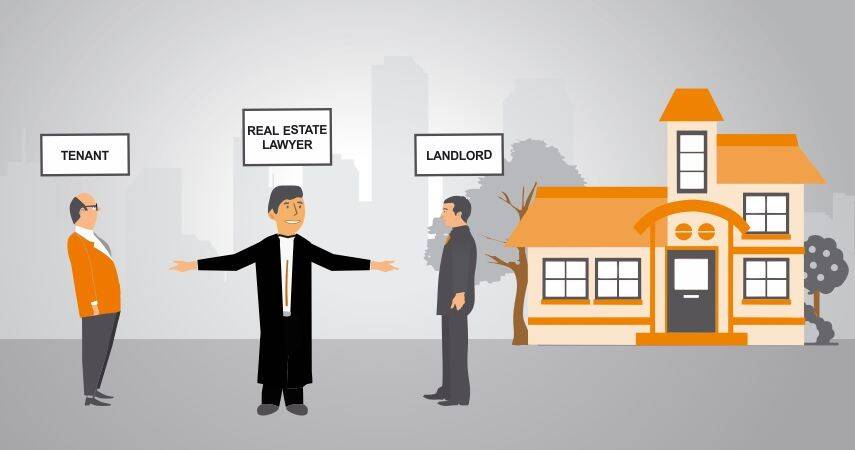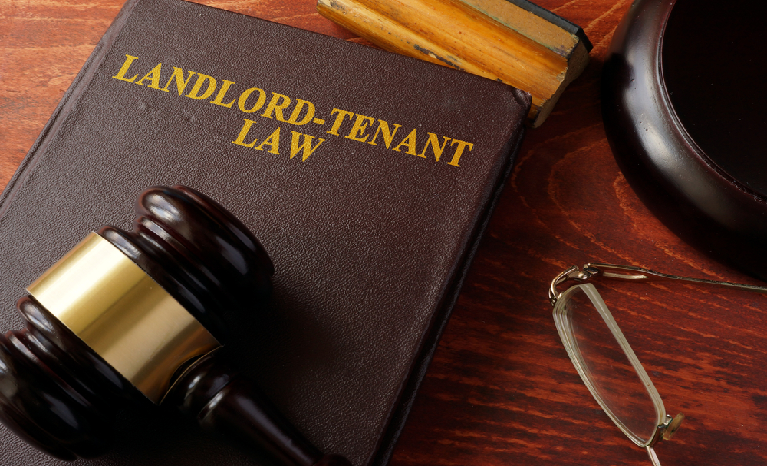In the intricate web of landlord-tenant relationships, conflicts and disputes can often arise. These disagreements may range from rent disputes and lease violations to maintenance issues and eviction proceedings. Navigating the complex terrain of landlord-tenant law can be challenging for both landlords and tenants alike. That’s where a landlord-tenant attorney steps in to provide valuable guidance and legal expertise. In this article, we’ll explore when and why you should consider hiring a landlord-tenant attorney to help you navigate these often tricky waters.
Understanding Landlord-Tenant Law
Before delving into when and why you might need a landlord-tenant attorney, it’s essential to have a basic understanding of the law governing these relationships. Landlord-tenant law varies from state to state and can encompass a wide range of issues. This body of law governs the rights and responsibilities of both landlords and tenants, ensuring a fair and legal arrangement for both parties.
Some common issues that fall under landlord-tenant law include:
- Rent Disputes: Disagreements over rent increases, late payments, or security deposits.
- Lease Violations: Breaches of lease agreements, such as unauthorized pets or subletting.
- Maintenance and Repairs: Issues related to property maintenance, repairs, and habitability.
- Evictions: The legal process for removing a tenant from a property.
- Tenant Rights: Protection against discrimination, privacy invasion, and illegal eviction.
- Landlord Rights: Protection of property rights, such as access and eviction rights.
Now that we have a foundation, let’s explore when and why you should seek the assistance of a landlord-tenant attorney.

When to Consider Hiring a Landlord-Tenant Attorney
1. Complex Legal Issues
Landlord-tenant disputes can become highly complex, especially when both parties are entrenched in their positions. If the issue at hand involves intricate legal matters or if you’re facing a lawsuit, hiring an attorney who specializes in landlord-tenant law is crucial. They have the expertise to navigate the complexities and provide effective legal representation.
2. Rent Disputes
Rent disputes can be particularly contentious. Whether you’re a landlord seeking unpaid rent or a tenant contesting unjustified rent increases, an attorney can help you understand your rights and responsibilities. They can negotiate on your behalf, potentially avoiding costly court proceedings.
3. Lease Violations
When lease violations occur, it’s essential to address them promptly and legally. A landlord-tenant attorney can advise you on the best course of action, whether it’s sending a notice to cure the violation, terminating the lease, or pursuing legal action.
4. Maintenance and Repairs
Issues related to property maintenance and repairs can significantly impact the quality of life for tenants. If a landlord fails to address these concerns despite repeated requests, tenants may need legal assistance to compel necessary repairs or seek compensation.
5. Evictions
The process of evicting a tenant can be legally complex and emotionally draining. Landlord-tenant attorneys can guide landlords through the eviction process, ensuring it complies with all legal requirements. On the other hand, tenants facing eviction can seek legal representation to protect their rights and explore potential defenses.
6. Tenant Rights
Tenants have legal rights that must be protected. If you believe your rights as a tenant have been violated, consulting with an attorney specializing in landlord-tenant law can help you understand your options and seek appropriate remedies.
Why Hire a Landlord-Tenant Attorney
Now that we’ve explored when you might consider hiring a landlord-tenant attorney, let’s delve into the why – the compelling reasons that make legal representation essential in certain situations.
1. Expertise in Landlord-Tenant Law
Landlord-tenant attorneys possess in-depth knowledge of the law specific to these relationships. They stay up-to-date with the latest legal developments and have experience handling a wide range of cases. This expertise is invaluable when navigating complex legal matters.
2. Objective Guidance
Emotions can run high in landlord-tenant disputes. Attorneys provide an objective perspective, helping both landlords and tenants make rational decisions based on the law rather than emotions. This objectivity can lead to more effective resolutions.
3. Negotiation Skills
Many disputes can be resolved through negotiation, avoiding the time and expense of going to court. Landlord-tenant attorneys are skilled negotiators who can work to reach a favorable settlement on your behalf.
4. Legal Protection
In some cases, landlords or tenants may face legal action. Having an attorney by your side ensures that your rights are protected, and you have proper legal representation in court.
5. Save Time and Money
While hiring an attorney involves costs, it can ultimately save you both time and money. A skilled attorney can expedite the resolution of disputes, potentially avoiding lengthy legal battles and costly mistakes.
The Importance of a Free Consultation
If you’re considering hiring a landlord-tenant attorney but are unsure about the process or your specific needs, take advantage of free consultations. Many attorneys offer a free initial consultation, during which you can discuss your situation and assess whether hiring an attorney is the right decision.
During this consultation, you can:
- Explain your case and concerns.
- Ask questions about the attorney’s experience and approach.
- Discuss potential strategies and outcomes.
- Get a sense of whether you feel comfortable working with the attorney.
- A free consultation can help you make an informed decision about whether to proceed with legal representation.
Finding the Right Attorney for Landlord-Tenant Issues
When seeking an attorney for landlord-tenant issues, it’s essential to choose someone with the expertise and experience to handle your specific case. Here are some steps to help you find the right attorney:
- Research
Look for attorneys who specialize in landlord-tenant law in your area. Online directories and legal association websites are good starting points.
- Read Reviews
Read reviews and testimonials from past clients to get a sense of an attorney’s reputation and track record.
- Interview Multiple Attorneys
Schedule consultations with a few attorneys to discuss your case and assess their suitability.
- Ask About Fees
Inquire about the attorney’s fees and payment structure. Make sure you understand the costs involved.
- Check Credentials
Verify the attorney’s credentials and ensure they are licensed to practice law in your jurisdiction.
- Trust Your Instincts
Choose an attorney with whom you feel comfortable and confident.
Conclusion
Hiring a landlord-tenant attorney is a decision that should not be taken lightly. It’s a step that can protect your rights, provide legal guidance, and potentially save you time and money in the long run. Whether you’re a landlord facing a difficult tenant or a tenant dealing with an unresponsive landlord, seeking legal counsel can make a significant difference in the outcome of your situation.
Remember, understanding when and why to hire a landlord-tenant attorney is the first step toward resolving your issue effectively and ensuring that your rights are upheld. Don’t hesitate to seek legal advice when facing complex landlord-tenant matters, and use the free consultation to your advantage in making an informed decision. In the realm of landlord-tenant relationships, having a knowledgeable attorney by your side can be the key to a smoother and more equitable resolution.

